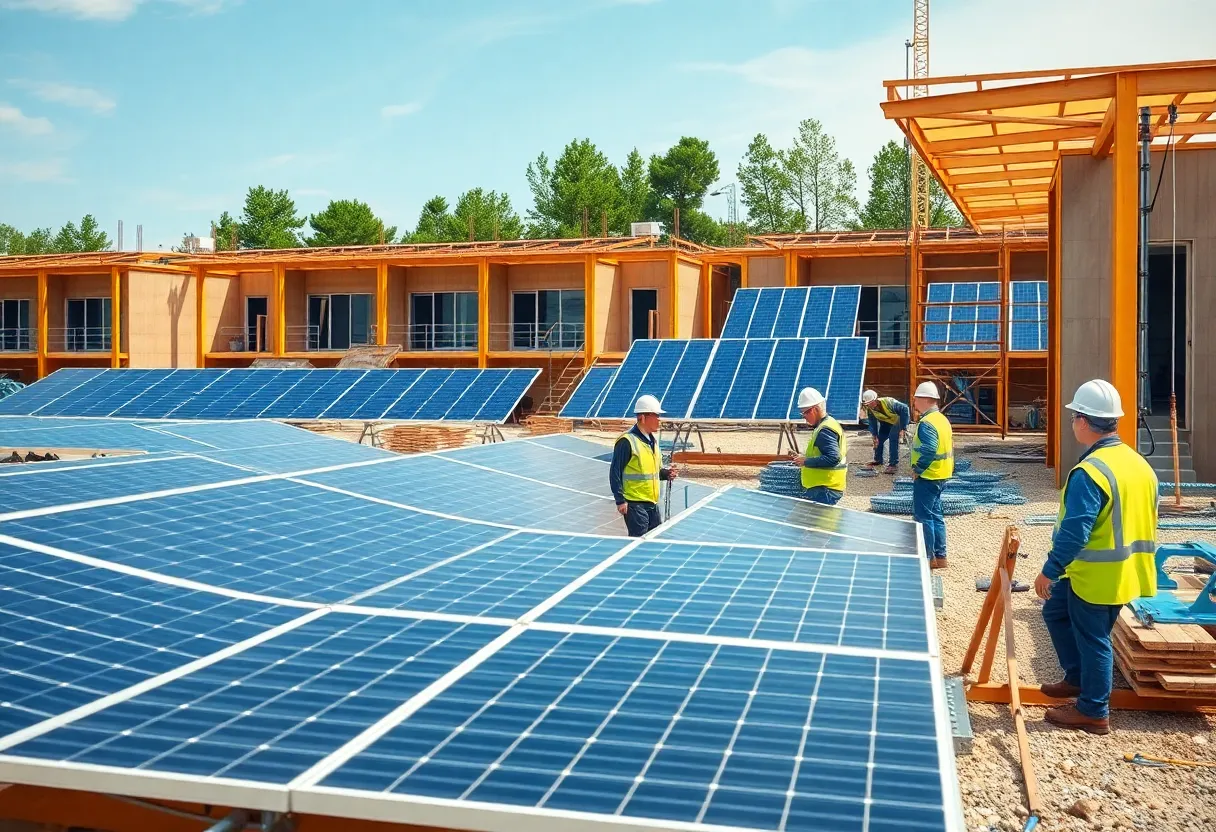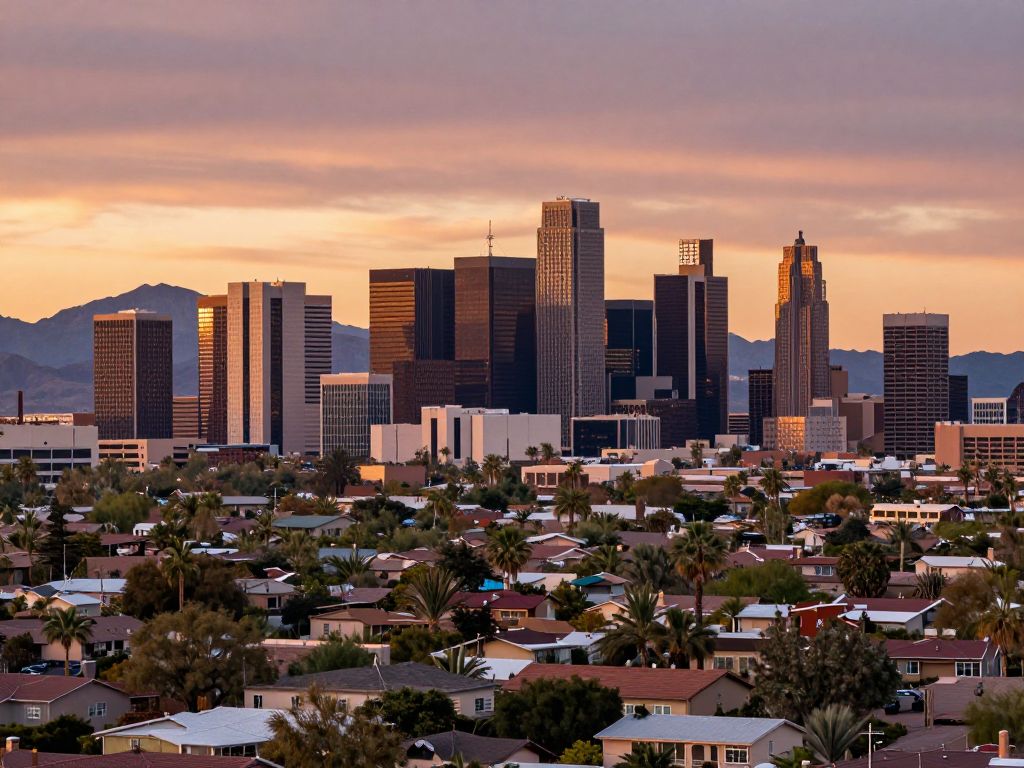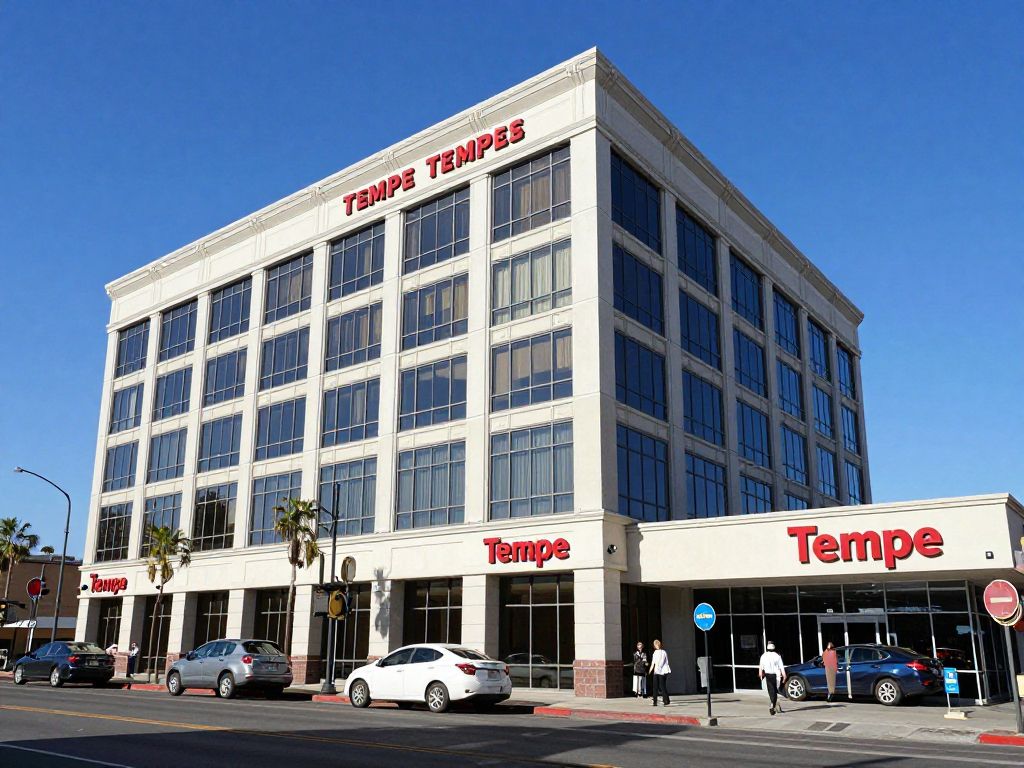Virginia, September 3, 2025
News Summary
Virginia’s construction industry faces challenges from tariff volatility, AI integration, and evolving renewable energy projects. These factors disrupt traditional practices and raise community concerns. Companies are adapting contracts to address pricing uncertainties while exploring modern construction methods like modular construction to enhance efficiency. As demand for renewable energy rises, projects like mega solar farms and data centers are bringing both progress and opposition from local communities, underscoring the complex interplay of technology, economics, and sustainability.
Virginia
The construction industry is currently navigating significant challenges stemming from tariff volatility, the integration of artificial intelligence (AI), and the evolution of renewable energy projects. These factors are not only altering the landscape of construction projects but also raising critical questions about sustainability and community acceptance.
The fluctuation of tariffs on construction materials such as lumber, steel, and copper has prompted industry professionals to adjust their contracts. To mitigate risks associated with pricing uncertainties, many companies are incorporating price escalation clauses and force majeure clauses into their agreements. It is crucial for contractors to carefully review these contracts before signing to understand how tariffs will impact their projects, especially in light of a reported 32% increase in opposition to solar farms from 2023 to 2024 across the nation.
In response to growing demand for renewable energy, technology companies are entering long-term agreements to power their operations. Notably, a $900 million solar farm near San Antonio, Texas, will provide electricity to Meta Platforms’ data centers beginning in 2027. Similarly, Meta is also pursuing a multi-gigawatt AI-optimized data center project named Hyperion in Louisiana, seeking to achieve 5 GW of computational power by 2030. This requires a significant investment of $1.2 billion in utility infrastructure to support the growing demand, which is expected to double or triple by 2028.
Amidst this backdrop, traditional construction practices are being challenged. Approximately 27% of construction industry professionals still utilize outdated tools like email and spreadsheets, which may hinder the successful completion of complex projects such as AI data centers. Meanwhile, modular construction is emerging as a solution, accounting for over 5% of total construction activity in the U.S. This method is particularly advantageous in higher education settings, where tight timelines and minimal campus disruption are priorities.
Local communities are increasingly expressing concerns regarding large-scale projects. The Frasier Solar project in Ohio, which aims to produce 120 MW of energy through solar agrivoltaics, faced significant local opposition but ultimately received final approval from local authorities. Conversely, a grassroots movement in Virginia effectively opposed a planned 2,200-acre gas-powered data center, reflecting a growing resistance to such developments.
In terms of permitting efficiency, Florida, North Carolina, and Virginia are ranked among the top states for facilitating construction projects, while Pennsylvania and West Virginia languish near the bottom. These rankings underscore the importance of regulatory frameworks in fostering a conducive environment for development.
As technology companies like Meta, Amazon, and Google drive demand for renewable energy, the construction related to these projects is intricately tied to evolving community sentiments and regulatory landscapes. Meta’s recent renewable energy agreements with Invenergy emphasize its commitment to sustainability, contributing to a total of 1,800 MW of clean energy across various projects.
The current state of the construction industry illustrates the complex interplay between economic factors, technological advancements, and environmental considerations. As the landscape evolves, construction professionals must remain agile and responsive to the shifting demands of the market and their respective communities.
FAQ Section
What is causing volatility in the construction industry?
The construction industry is facing tariff volatility affecting material costs, necessitating updates to contracts to mitigate risks.
How is artificial intelligence impacting construction projects?
AI advancements are creating higher demand for data centers, requiring updated construction methods and tools.
What are the current trends in renewable energy projects?
There is a growing demand for renewable energy, particularly from technology companies looking to power data centers sustainably.
How are local communities reacting to new construction projects?
Communities are increasingly opposing large-scale developments, including solar farms and gas-powered data centers, reflecting concerns over environmental and economic impacts.
What role does modular construction play in the industry?
Modular construction offers a time-efficient approach to building, accounting for over 5% of construction activity, particularly in educational settings.
Deeper Dive: News & Info About This Topic
HERE Resources
Tragic Accident Claims Life of Quarry Worker in Derry Township
Juvenile Student Found with Gun on School Premises
Transportation Challenges for Special Needs Students in New Britain
Phoenix Population Growth Continues Amid Housing Challenges
Arizona State Football Season Opener Faces Streaming Issues
Technical Issues Mar ASU vs. Northern Arizona Broadcast
Boston’s Labor Day Weekend Travel Surge and Hotel Deals
Tariff Exclusions Considered to Boost Housing Market
Scottsdale Named Seventh-Most Luxurious City in the U.S.
Labor Day Protests in Phoenix Highlight Worker Rights
Additional Resources
- JD Supra: The Site Report – Construction Industry
- Wikipedia: Construction Industry
- ESG Today: Meta Secures Nearly 800 MW of Renewable Energy
- Google Search: Renewable Energy Construction
- Dispatch: Data Center Project in Ohio
- Google Scholar: Data Centers Construction
- Carbon Credits: Meta Powers U.S. Data Centers
- Encyclopedia Britannica: Data Centers
Author: STAFF HERE PHOENIX WRITER
The PHOENIX STAFF WRITER represents the experienced team at HEREPhoenix.com, your go-to source for actionable local news and information in Phoenix, Maricopa County, and beyond. Specializing in "news you can use," we cover essential topics like product reviews for personal and business needs, local business directories, politics, real estate trends, neighborhood insights, and state news affecting the area—with deep expertise drawn from years of dedicated reporting and strong community input, including local press releases and business updates. We deliver top reporting on high-value events such as the Waste Management Phoenix Open, Cactus League Spring Training, and Arizona State Fair. Our coverage extends to key organizations like the Greater Phoenix Chamber of Commerce and Visit Phoenix, plus leading businesses in technology and healthcare that power the local economy such as Intel and Banner Health. As part of the broader HERE network, including HERETucson.com, we provide comprehensive, credible insights into Arizona's dynamic landscape.





